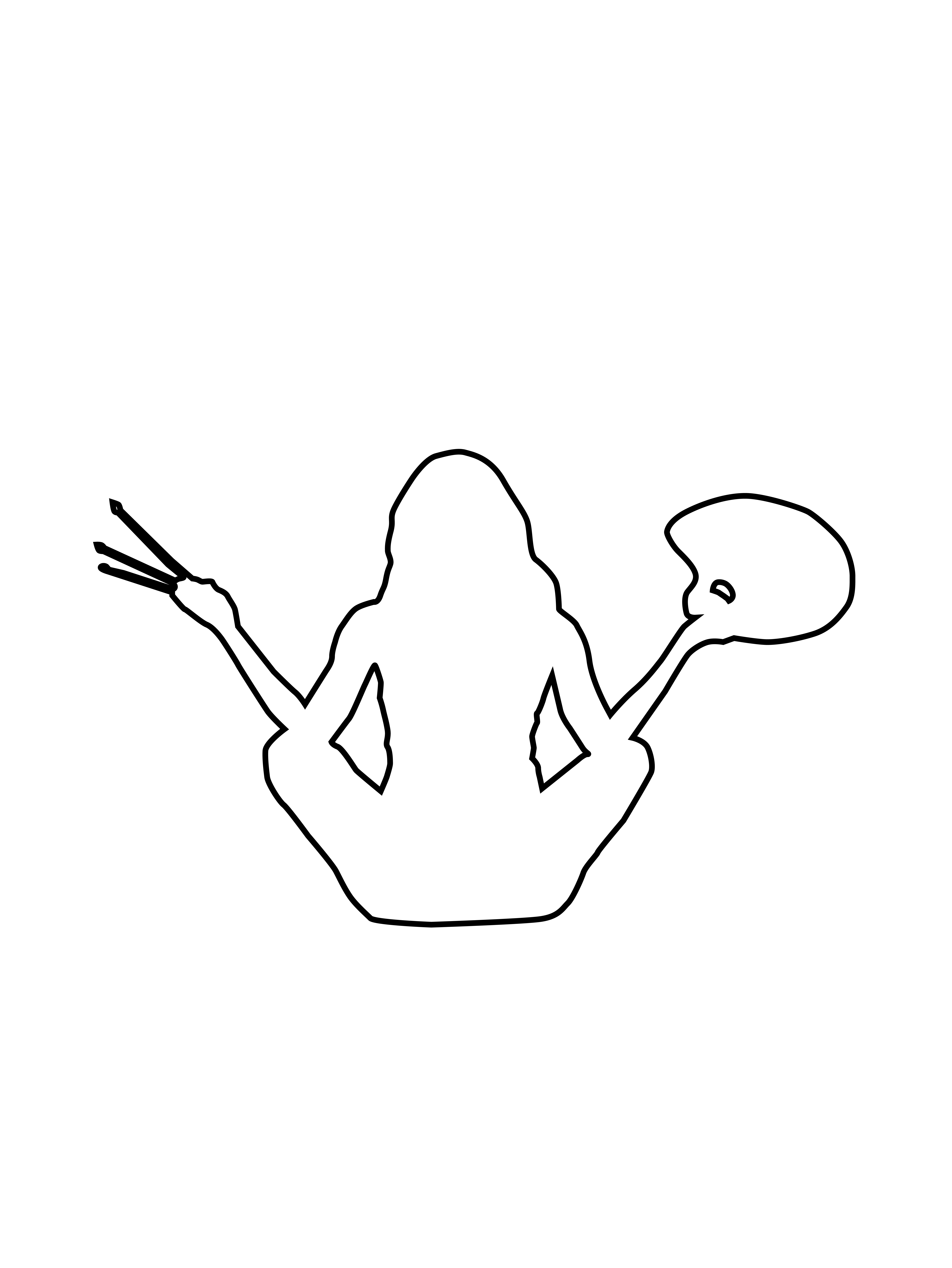Thinking on my own creative processes
A few years ago, and after traveling overseas many times to see my family, I realized that the souvenir shops in Gold Coast offer constantly the same products. Over nine years, they have changed very little to engaged locals with their souvenirs. I understood that probably we are not the main target audience, but they should definitely consider us more often.
I still don't know if it was a good idea or not, but I hired a graphic designer to hand-draw Australian animals so I can print them onto t-shirts and baby bodysuits. I have sold many through Ebay but one day I would like to expand the horizons of that idea.
Thinking about the assessment tasks in this course, were there any significant design moments that occurred away from your normal working space?
Yes, walking at the beach I thought of taking advantage of my handwriten notes and use them to show the way I like to study. I used to teach "Techniques for Study" and since then I like to visualise what I'm reading in my own particular way. So I use old fashioned pen and paper to create notes, mind-maps, brainstorms, and conceptual maps.
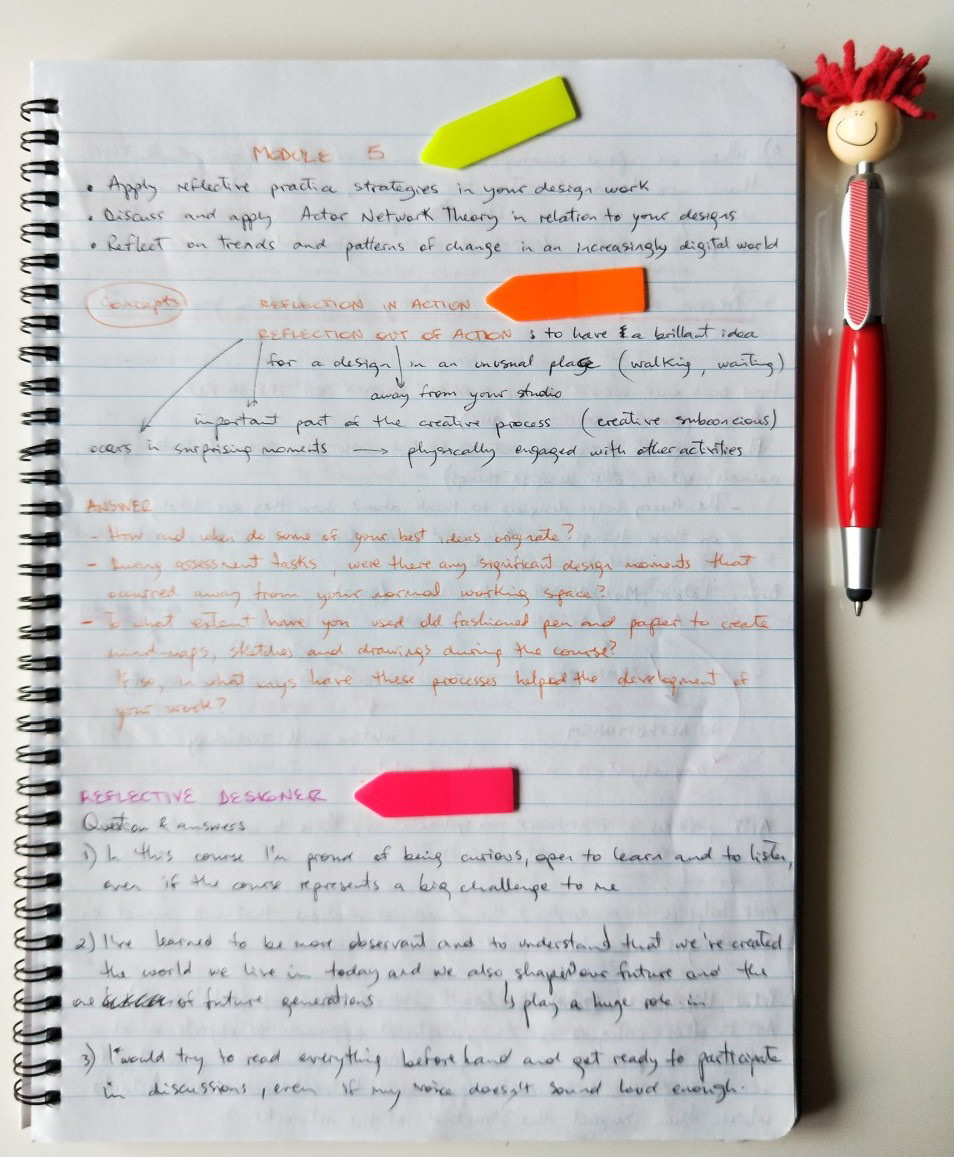
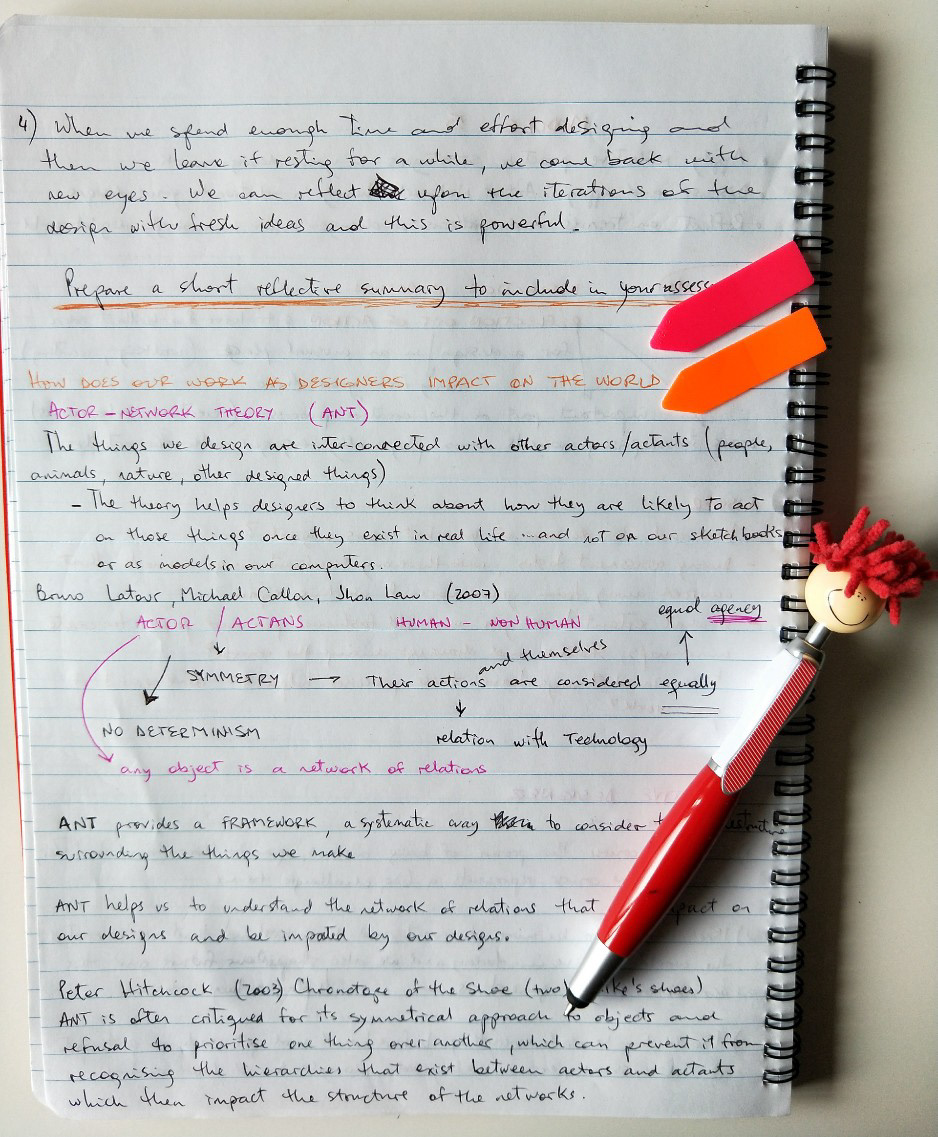
REFLECTIVE DESIGNER
Throughout the course I discovered that to be curious is a plus in whatever we do. I'm proud of being curious, open to learn and listen, even if the course represented a big challenge to me.
I have learned so much! I've learned to be more observant and to understand that we have, somehow, created the world we live in today, and we also play a big role in shaping our future and the one of future generations. I learned that we must respect other's work and designs, other cultures, even if we are not able to understand them. I learned that all of us have the right to express ourselves in our own particular way without feeling the oppression of someone else norms or structures.
I also learned that it's essential to understand the history of design to participate in the Decolonization process that has started and has the hope to show different ways of KNOWING.
I finally let my mind rest when I learned that the Western standards for art and design are NOT UNIVERSAL. I always have a guilty feeling of being out of their structures and norms.
If I could go back in time, I would try to do this course in presence rather than online (not sure if it is available). Even though, I enjoyed every page of the course content, every reading, and every video. I feel I missed the interaction with the teacher (so important to me). It was all my fault for not being able to participate in 'Teams' properly. Most of the times, I felt I didn't have anything important to say, or what someone else said was what I was thinking, expressed in a much better way I could do. Other times, I was far behind of what everyone was talking about.
Alvena Yaneva, " Making the Social Hold: Towards an Actor-Network Theory of Design"
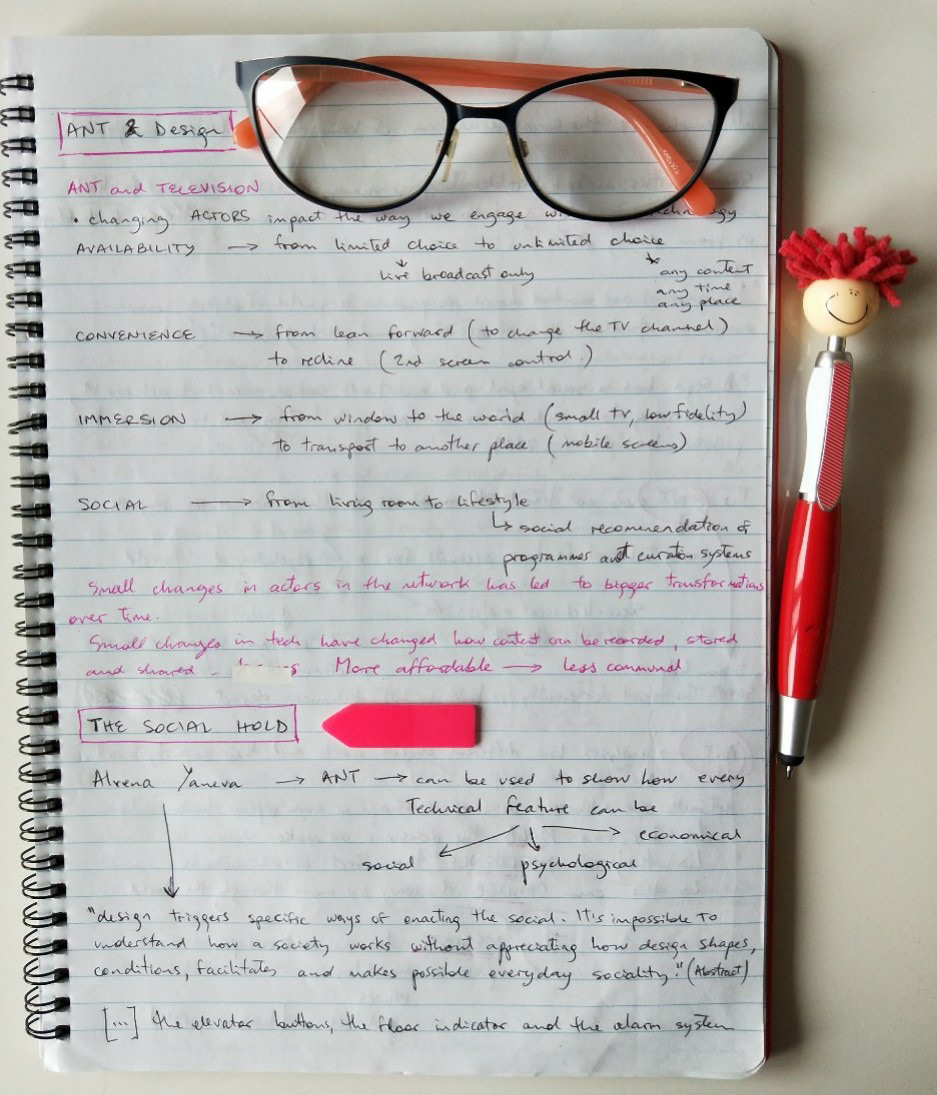



REFLECTION
Use Actor Network Theory to identify the networks that exist around your Assessment 1 box
The ACTOR-NETWORK THEORY provides a systematic way to consider the infrastructure surrounding the things we make. It helps to understand the network of relations that will impact on our designs and be impacted by our designs.
For example, to be able to make the gift box, an incredible number of networks were involved:
The University that has a Designer career, a course, a teacher who develops a program in which the students need to establish relationships and play the roles of designer an client. The resources to understand the content of the course. The computers and software to communicate with the teacher and classmates. The Internet company that deliver the service and its administration that makes sure we pay the bill. The printer and paper manufacturer, seller, buyer and user. The client that order the box. The items that the client wants to include in the design; in the box I had to design were the guitar picks, the CD covers, and the pentagram sheets. The shops that sell those items and... I'm pretty sure I'm forgetting something.
I [heart] sustainability (because necessity has no longer agency)
by Cameron Tonkinwise
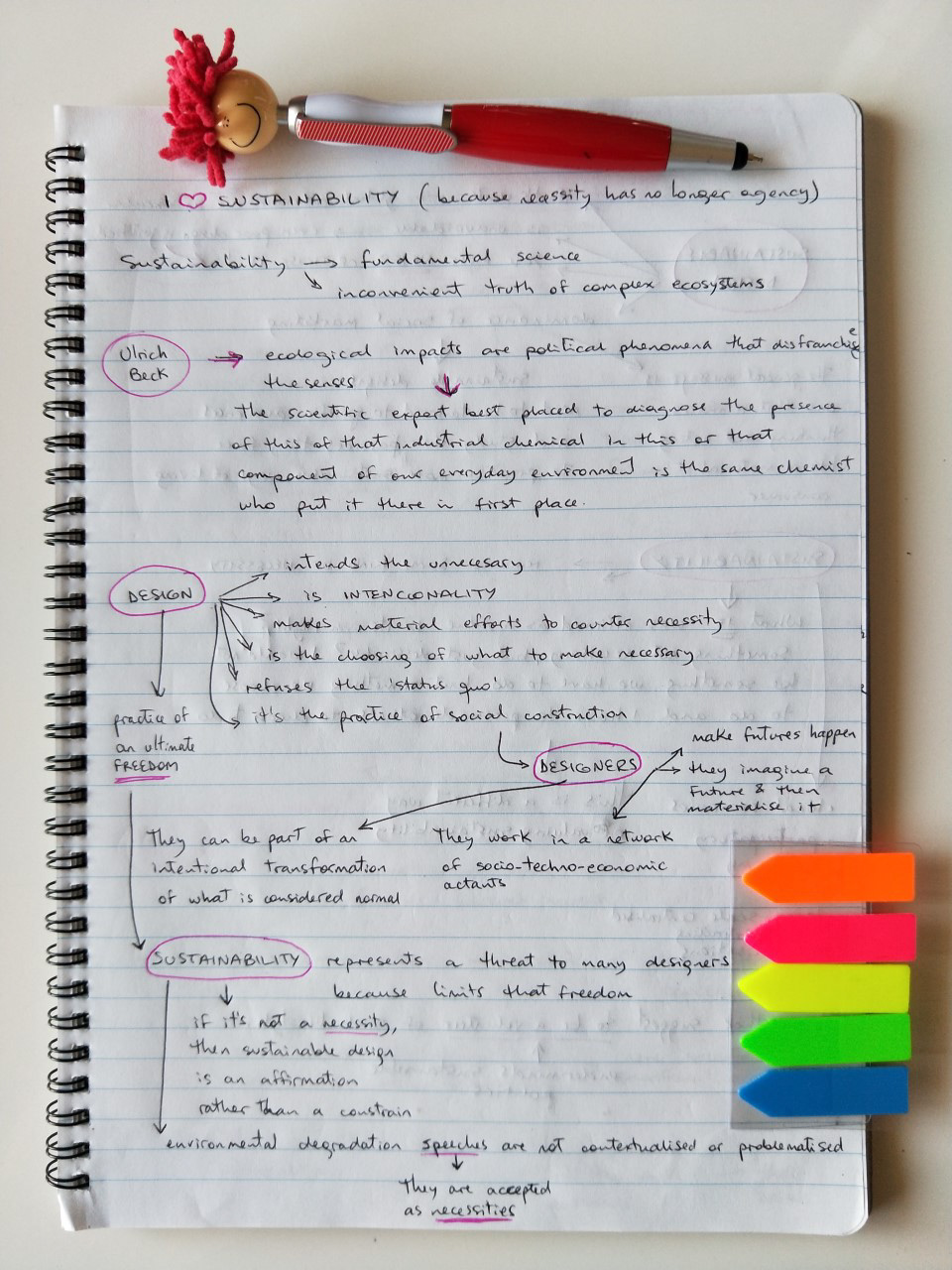

Very interesting text, despite of its complexity. I had to read it a couple of times to be more confident with it. I hope I got the right message.
Tonkinwise explains that design is the practice of an ultimate freedom. It intends the unnecessary and it's the choosing of what to make necessary. Designers make the future happen, working in a network of socio-techno-economic actants. In this context, SUSTAINABILITY represent a threat to many designers because it limits their freedom. BUT if sustainability is not a necessity, then it's not a constrain either.
Tonkinwise criticizes that the environmental degradation speeches are never problematized and they are accepted as necessities. If a sustainable design is weak or poor, the global calamities justify them. The general message intends to reinforce the materialist consumer.
The author encourages the reader to think about sustainability as a desirable value rather than a necessity. Something we choose to do and we want to persuade others to do. A way to support local and participatory economies instead of large-scale centralised profit-extracting organizations.
One of the main consequences of this way of thinking is that if sustainability is not a necessity, then sustainable designs cannot be conditioned by nature. Sustainable design is the 'post-normal science of the artificial'.
Sustainability, in conclusion, is a decision to value something else, something unnecessary, and therefore worth valuing.
This reading clarifies an uncomfortable feeling of the veracity of many sustainable statements that pretend to sell artificial processed manufactured products made with 'organic' ingredients. Tonkinwise says that the question of 'which bit of nature to mimic' is an error. Sustainable designs are artificial.
Overall, I like to think of sustainability but I believe we need to be more careful not to justify poor or weak designs. I want to be a designer who cares about the environment but I don't want to be taken by the nose by political speeches that have not been properly contextualised or problematised.




